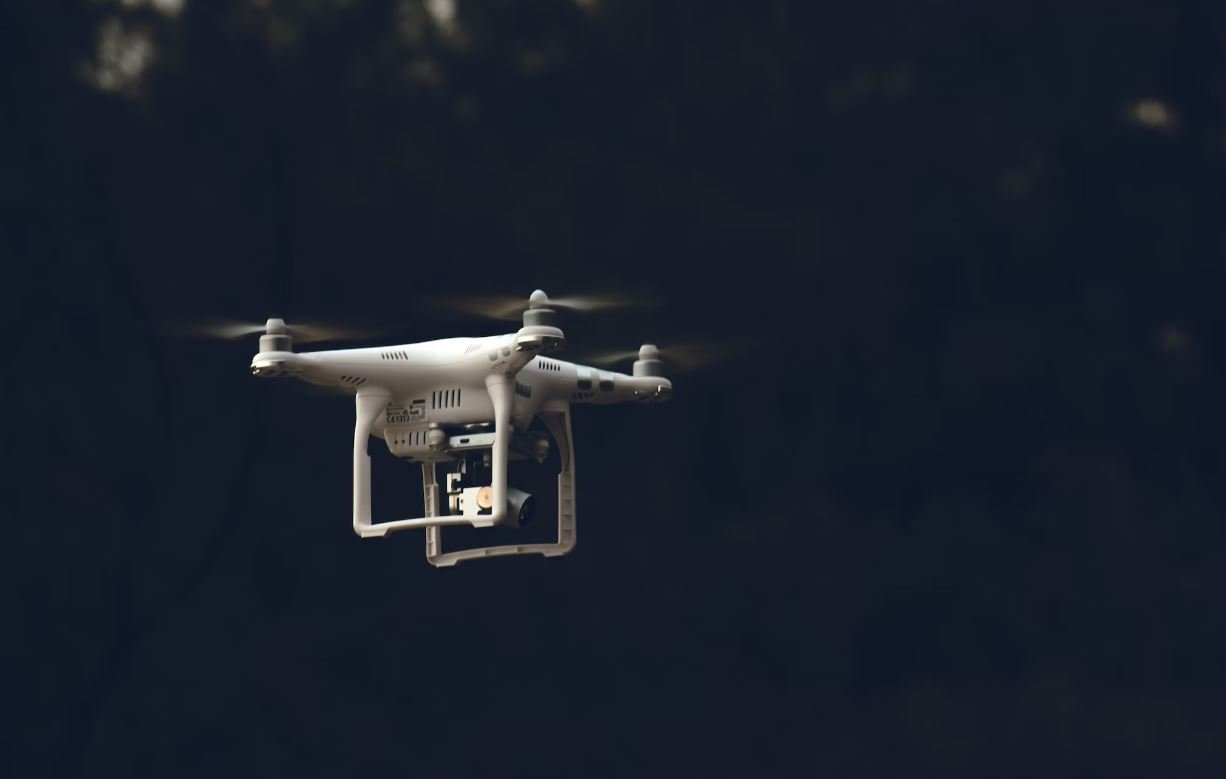What Artificial Intelligence Do
Artificial Intelligence (AI) has revolutionized various fields, enabling machines to perform tasks that typically require human intelligence. From self-driving cars to virtual assistants, AI is transforming industries and reshaping our daily lives. In this article, we will explore some of the key applications and capabilities of AI.
Key Takeaways:
- AI is a technology that enables machines to perform tasks that usually require human intelligence.
- AI can be found in various applications such as self-driving cars and virtual assistants.
- AI has the potential to transform industries and reshape our daily lives.
The Capabilities of AI
Artificial Intelligence encompasses a wide range of capabilities that enable machines to mimic human cognitive functions. Some of the key capabilities of AI include:
- Natural Language Processing (NLP): *NLP allows machines to understand and interpret human language, making it possible for virtual assistants to respond to voice commands and carry out tasks.*
- Machine Learning: *Machine learning algorithms empower AI systems to process large amounts of data, identify patterns, and make predictions or decisions based on that data.*
- Computer Vision: *Computer vision enables machines to analyze and interpret visual information, enabling applications such as facial recognition and object detection.*
These AI capabilities enable machines to perform an array of complex tasks, making them highly versatile tools in various industries.
Applications of AI
AI has found numerous applications across different sectors, improving efficiency and driving innovation. Some notable applications include:
| Application | Description |
|---|---|
| Self-driving Cars | AI-powered vehicles that can navigate autonomously, enhancing road safety and reducing traffic congestion. |
| Virtual Assistants | Intelligent digital assistants, like Siri and Alexa, that respond to voice commands and help with various tasks. |
| Medical Diagnosis | AI algorithms that analyze medical data to assist doctors in diagnosing diseases and recommending treatments. |
These are just a few examples of how AI is transforming industries and improving our daily lives.
AI Ethics and Challenges
While AI brings immense benefits, it also raises ethical concerns and challenges. Some of the key considerations include:
- Privacy and Data Security: *AI relies on vast amounts of data, raising concerns about privacy and the secure handling of personal information.*
- Job Displacement: *The automation potential of AI can lead to job displacement for certain tasks, requiring a shift in the workforce and the need for upskilling and reskilling.*
- Implicit Bias: *AI systems can perpetuate biases present in the data they are trained on, leading to unfair outcomes or discrimination.*
Addressing these ethical considerations and challenges is crucial to ensure responsible and inclusive deployment of AI technologies.
Future of AI
The field of AI is rapidly advancing, and its potential is continually expanding. As technology progresses, we can expect to see even greater AI integration and advancements in various sectors, including healthcare, finance, and transportation.
Conclusion
Artificial Intelligence is revolutionizing industries and transforming the way we live and work. Its capabilities, applications, and ethical considerations are shaping a future where machines collaborate with humans to enhance efficiency, productivity, and innovation.

Common Misconceptions
AI will take over the world
One of the most common misconceptions about artificial intelligence is that it will eventually become so advanced that it will take over the world and threaten humanity. While AI has made significant advancements in recent years, it is important to note that AI systems are designed by humans and are limited to the tasks they are programmed to perform. They do not possess the ability to think or behave independently.
- AI does not have an agenda or consciousness.
- AI cannot make decisions beyond its programming.
- AI technology is developed and guided by human intervention.
AI will replace human jobs entirely
Another misconception about AI is that it will completely replace human jobs, leading to widespread unemployment. While AI has the potential to automate certain tasks, it is unlikely to replace jobs in their entirety. Instead, AI is more likely to augment human capabilities, making certain tasks more efficient and freeing up human workers to focus on more complex and creative work.
- AI can perform repetitive and mundane tasks faster and more accurately.
- AI can support and enhance human decision-making processes.
- AI can create new job opportunities in fields related to its development and implementation.
AI is infallible and error-free
Contrary to popular belief, AI is not infallible and can make mistakes. AI systems are developed based on the data they are trained on, and if the data is biased or incomplete, the AI may produce inaccurate or biased results. Additionally, AI relies on algorithms and models that are created by humans, who can introduce errors or biases unintentionally.
- AI is only as good as the data it is trained on.
- AI can perpetuate and amplify existing biases present in the data.
- AI needs continuous monitoring and improvement to reduce errors and biases.
AI is only for high-tech industries
Many people mistakenly believe that AI is only applicable in high-tech industries, such as software development or robotics. However, AI has the potential to impact and revolutionize various industries, including healthcare, finance, transportation, and agriculture. Its applications range from improving diagnosis and treatment in healthcare to optimizing supply chain management in logistics.
- AI can enhance efficiency and accuracy in various industries.
- AI can automate routine tasks in a wide range of sectors.
- AI can provide innovative solutions to complex problems across different fields.
AI is a recent invention
While the recent advancements in AI have garnered significant attention, the concept of AI has been around for decades. The field of AI dates back to the 1950s, and researchers have been working on various AI techniques and algorithms since then. While the recent developments have made AI more accessible and visible, AI is a result of a long history of research and innovation.
- AI has a rich history of research spanning several decades.
- AI pioneers like Alan Turing and John McCarthy laid the foundations for modern AI.
- AI has gone through multiple cycles of hype and advancement over the years.

Use of Artificial Intelligence in Healthcare
Artificial Intelligence (AI) is revolutionizing the healthcare industry, improving patient outcomes, and transforming the way medical professionals provide care. The following table illustrates the various applications of AI in healthcare.
| Application | Description |
|---|---|
| Medical Image Analysis | AI algorithms analyze medical images to aid in the diagnosis of conditions like cancer, stroke, and heart diseases. |
| Robot-Assisted Surgery | AI-powered robots assist surgeons during complex procedures, enabling precise and minimally invasive surgeries. |
| Patient Monitoring | AI systems continuously monitor patients’ vital signs and detect abnormalities, allowing for early intervention. |
| Virtual Health Assistants | AI-based chatbots or virtual assistants provide 24/7 support to patients, answering queries and providing medical advice. |
| Drug Discovery | AI algorithms analyze vast amounts of data to accelerate the discovery and development of new drugs and treatments. |
The Impact of AI on Transportation
Artificial Intelligence is reshaping the transportation sector, making it more efficient, safer, and environmentally friendly. The table below highlights some key developments in AI-powered transportation.
| Application | Description |
|---|---|
| Autonomous Vehicles | AI enables self-driving cars, reducing accidents and congestion while improving fuel efficiency and transportation accessibility. |
| Traffic Management | AI systems optimize traffic flow, predicting patterns and adjusting signals in real-time to alleviate congestion. |
| Ride-Sharing Services | AI algorithms match riders with drivers efficiently, improving route planning for cost-effective and time-efficient rides. |
| Cargo Logistics | AI streamlines supply chain management, optimizing routes, tracking shipments, and predicting maintenance needs. |
| Smart Infrastructure | AI-powered sensors monitor the condition of roads, bridges, and other infrastructure, enabling predictive maintenance. |
AI in Education: Transforming Learning
Artificial Intelligence has immense potential in revolutionizing education by personalizing learning experiences, enhancing academic outcomes, and empowering educators. The table below showcases some applications of AI in education.
| Application | Description |
|---|---|
| Educational Assistants | AI-powered assistants provide personalized feedback, adaptive learning paths, and virtual tutoring to students. |
| Smart Content | AI algorithms analyze student data to tailor educational content and resources based on individual needs and preferences. |
| Automated Grading | AI automates grading, saving teachers time and providing students with immediate feedback on their assignments. |
| Identifying Learning Gaps | AI systems identify areas where students struggle most, enabling targeted interventions and personalized support. |
| Cognitive Skills Development | AI-based applications enhance critical thinking, problem-solving, and creativity through interactive learning experiences. |
Enhancing Financial Services with AI
Artificial Intelligence is transforming the financial services industry, improving efficiency, mitigating risks, and enhancing customer experiences. The table below outlines some key applications of AI in finance.
| Application | Description |
|---|---|
| Automated Trading | AI algorithms analyze market trends, execute trades, and make investment decisions with speed and precision. |
| Fraud Detection | AI systems identify patterns and anomalies in financial transactions to detect and prevent fraudulent activities. |
| Personalized Financial Advice | AI-powered chatbots or digital assistants provide tailored recommendations and financial planning guidance. |
| Risk Assessment | AI models assess creditworthiness, evaluate insurance claims, and calculate risks to optimize lending and underwriting processes. |
| Customer Service Automation | AI-based platforms automate routine customer interactions, enhancing response time and improving customer satisfaction. |
The Role of AI in Retail
Artificial Intelligence is revolutionizing the retail industry, offering personalized shopping experiences, optimizing logistics, and driving sales growth. The table below identifies some applications of AI in the retail sector.
| Application | Description |
|---|---|
| Product Recommendations | AI systems analyze customer data to provide personalized product recommendations, increasing sales and customer satisfaction. |
| Inventory Management | AI algorithms predict demand, optimize inventory levels, and prevent stockouts or overstocks, reducing costs and improving availability. |
| Visual Search | AI-powered visual search tools allow customers to find products by uploading images, enhancing convenience and discovery. |
| Chatbots for Customer Support | AI-based chatbots provide instant customer support, answer queries, and assist with purchases, enhancing customer experiences. |
| Dynamic Pricing | AI adjusts prices in real-time based on market data, competitor analysis, and customer demand, optimizing profitability. |
AI in Entertainment and Media
Artificial Intelligence is transforming the entertainment and media industry, revolutionizing content creation, curation, and personalized experiences. The table below illustrates some applications of AI in this domain.
| Application | Description |
|---|---|
| Content Recommendation | AI algorithms analyze user preferences and behavior to offer personalized recommendations for movies, music, and articles. |
| Virtual Reality (VR) | AI enhances VR experiences by generating realistic environments, improving immersion, and creating interactive narratives. |
| Automated Content Creation | AI generates content, such as news articles or reports, based on data analysis and natural language processing techniques. |
| Video and Image Analysis | AI algorithms analyze video and image content, automatically tagging and categorizing media, facilitating search and organization. |
| Streamlined Post-production | AI automates video editing processes, reducing time and effort required for tasks like filtering, enhancing, and captioning. |
AI in Environmental Conservation
Artificial Intelligence is playing a crucial role in environmental conservation efforts, aiding in monitoring, prediction, and sustainable practices. The table below presents some applications of AI in environmental conservation.
| Application | Description |
|---|---|
| Wildlife Protection | AI-powered cameras and drones monitor endangered species, detect poaching activities, and aid in wildlife conservation. |
| Climate Modeling | AI models analyze climate data to predict changes, assess risks, and inform strategies for climate change mitigation and adaptation. |
| Smart Agriculture | AI systems optimize farming practices, monitor crop health, conserve water, and minimize the use of pesticides and fertilizers. |
| Water Quality Management | AI algorithms assess water quality, detect contaminants, and provide insights for effective water resource management. |
| Energy Optimization | AI-based solutions analyze energy consumption patterns and recommend strategies to optimize efficiency and reduce emissions. |
AI-driven Customer Service
Artificial Intelligence is transforming customer service by providing faster response times, personalized interactions, and seamless experiences. The table below showcases some applications of AI in customer service.
| Application | Description |
|---|---|
| Virtual Assistants | AI-powered chatbots or virtual assistants handle customer queries, resolve common issues, and provide 24/7 support. |
| Speech Recognition | AI systems transcribe and analyze customer voice interactions, improving call-center operations and voice-based support. |
| Sentiment Analysis | AI algorithms analyze customer feedback and social media data to gauge sentiment, identify trends, and improve service quality. |
| Omnichannel Support | AI enables seamless support across multiple channels, allowing customers to switch between phone, email, chat, or social media. |
| Personalized Recommendations | AI analyzes customer data to offer tailored product or service recommendations, increasing cross-selling opportunities. |
AI in Sports Analytics
Artificial Intelligence is revolutionizing the field of sports analytics, providing detailed insights, performance predictions, and player monitoring. The table below highlights key applications of AI in sports analytics.
| Application | Description |
|---|---|
| Player Performance Analysis | AI algorithms analyze player movements and game data to provide insights on performance, strategies, and injury prevention. |
| Game Outcome Prediction | AI models process historical and real-time data to predict game outcomes, assisting coaches in making informed decisions. |
| Track and Field Analytics | AI-powered sensors and image analysis improve analysis techniques in athletic events like sprinting, jumping, or throwing. |
| Sports Broadcasting | AI enhances sports broadcasting with real-time statistics, player tracking, and immersive visualizations for viewers. |
| Injury Risk Assessment | AI models identify patterns and risk factors to assess and prevent injuries, optimizing training strategies and player conditioning. |
The applications of Artificial Intelligence are vast and diverse, revolutionizing industries and impacting our lives in significant ways. From healthcare to transportation, education to finance, retail to entertainment, and more – AI contributes to improved efficiency, enhanced experiences, and transformative changes. As technology continues to advance, the potential of AI remains infinite, paving the way for a future shaped by intelligent machines.
Frequently Asked Questions
What is Artificial Intelligence?
Artificial Intelligence (AI) refers to the simulation of human intelligence in machines that are programmed to think and learn like humans. It involves the development of computer systems capable of performing tasks that typically require human intelligence, such as visual perception, speech recognition, decision-making, and problem-solving.
How does Artificial Intelligence work?
Artificial Intelligence works by using various techniques and algorithms to process and analyze large amounts of data, identify patterns, and make intelligent decisions based on the available information. Machine learning, deep learning, neural networks, and natural language processing are some of the key technologies used in AI systems.
What are the applications of Artificial Intelligence?
Artificial Intelligence is being widely used across different industries and sectors. Some common applications include:
- Virtual personal assistants, like Siri and Alexa
- Recommendation systems, used by Netflix and Amazon
- Autonomous vehicles and drones
- Medical diagnosis and treatment planning
- Fraud detection in financial transactions
- Automated customer support and chatbots
What are the benefits of using Artificial Intelligence?
Artificial Intelligence offers several benefits, such as:
- Increased efficiency and productivity
- Improved accuracy and precision
- Enhanced decision-making capabilities
- Automation of repetitive tasks
- Ability to process and analyze large volumes of data
- Personalized user experiences
What are the challenges or limitations of Artificial Intelligence?
While Artificial Intelligence has made significant advancements, there are still a few challenges and limitations to consider:
- High costs associated with development and implementation
- Data quality and availability issues
- Ethical concerns and potential biases in decision-making
- Security and privacy risks
- Unemployment concerns due to automation
- Difficulty in replicating human intuition and creativity
What is the future of Artificial Intelligence?
The future of Artificial Intelligence looks promising. Advancements in AI technology are expected to transform various industries and have a significant impact on society. With ongoing research and development, we can anticipate further breakthroughs in areas like healthcare, transportation, finance, and more.
What is the difference between Artificial Intelligence and Machine Learning?
Artificial Intelligence is a broader concept that involves creating intelligent machines capable of mimicking human behavior, while Machine Learning is a subset of AI that focuses on the ability of machines to learn from data and improve without being explicitly programmed. In other words, Machine Learning is a technique used to achieve Artificial Intelligence.
What are some popular AI frameworks and libraries?
There are several popular AI frameworks and libraries used by developers and researchers. Some examples include:
- TensorFlow
- PyTorch
- Scikit-learn
- Keras
- Microsoft Cognitive Toolkit
- Caffe
- Theano
How can businesses benefit from implementing Artificial Intelligence?
Businesses can benefit from implementing Artificial Intelligence in numerous ways, including:
- Automating tasks and processes to improve efficiency
- Enhancing customer service with chatbots and virtual assistants
- Gaining insights from data to make data-driven decisions
- Improving product recommendations and personalized experiences
- Identifying and preventing fraud and security threats
- Optimizing supply chain management and logistics




